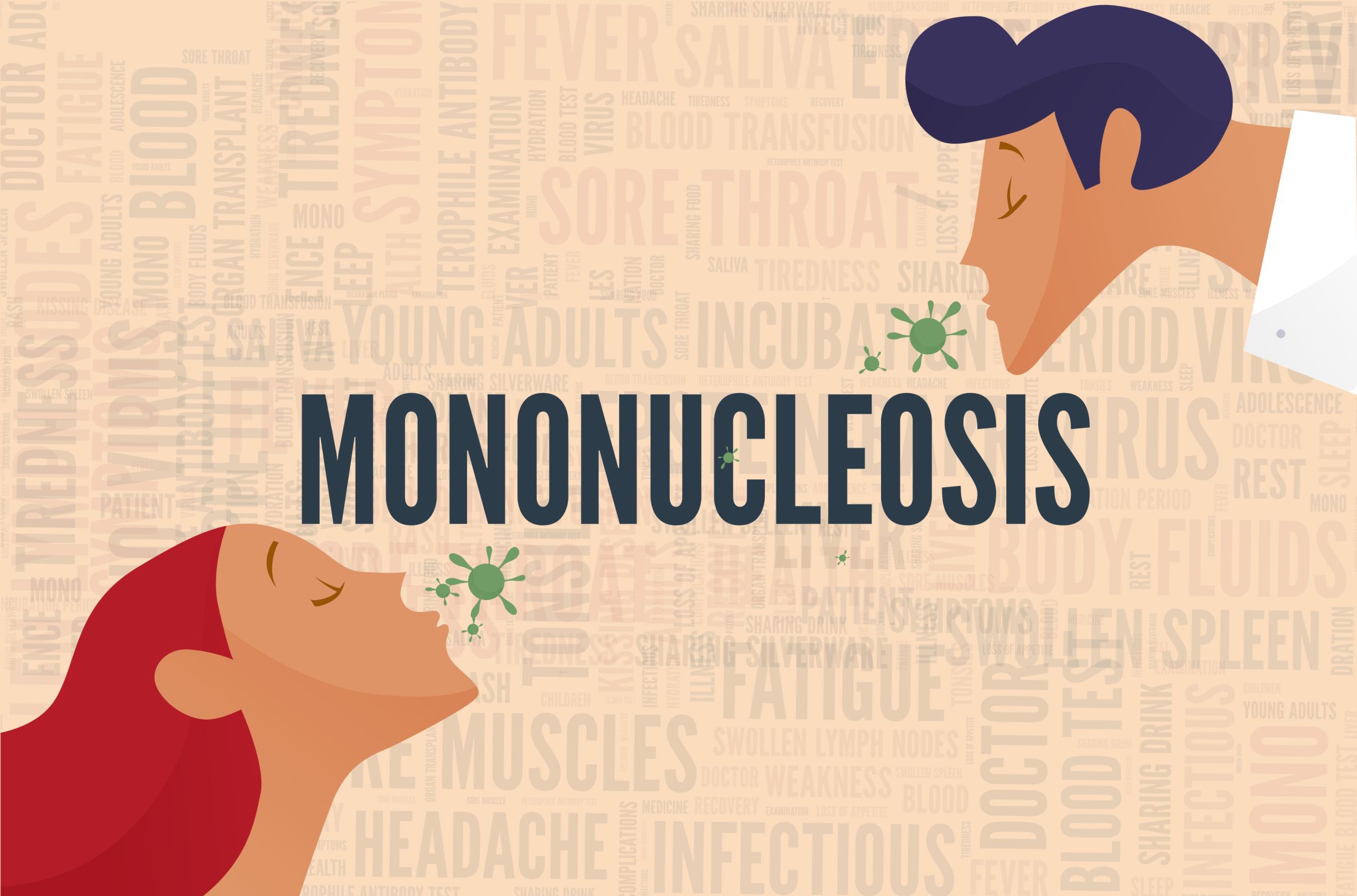
Often misunderstood, mononucleosis, also known as ‘mono’ or the ‘kissing disease,’ can bring lingering fatigue and flu-like symptoms, making it a unique challenge to overcome. Furthermore, because the initial symptoms of a common cold infection can overlap, there is a chance that people in general might get confused between the two.
But what exactly is mononucleosis? Is it as contagious as the common cold? Happiest Health gets expert insights into all such commonly asked questions.
What is mononucleosis infection?
Mononucleosis or infectious mononucleosis (IMN) is a viral infection primarily caused by the Epstein-Barr virus (EBV), a member of the herpesvirus family. Both IMN and the common cold are caused by different viruses.
“The common cold is usually caused by rhinoviruses or coronaviruses, while mononucleosis is caused by the Epstein-Barr virus,” says Dr Atul Kumar Mittal, principal director of department of ENT, Fortis Memorial Research Institute, Gurugram.
He further explains that the symptoms of a common cold typically include a runny or stuffy nose, sneezing, sore throat, and cough, while mononucleosis/glandular fever typically presents with early symptoms like tiredness and headache followed by more severe symptoms such as extreme fatigue, fever, swollen lymph nodes, sore throat, tonsillitis, and enlarged spleen.
Causes of mononucleosis
EBV, the primary causative agent of mononucleosis, is a widespread virus that is typically spread through the exchange of bodily fluids, primarily saliva.
“It is colloquially referred to as the “kissing disease” due to its propensity for transmission through kissing, but it can also spread through other forms of close contact with infected saliva, such as sharing utensils or drinks,” says Dr Vijay Verma, consultant allergy and ENT specialist, C K Birla Hospital, Gurugram. Once the virus enters the body, it primarily targets B lymphocytes, a type of white blood cell responsible for immune responses, thereby weakening the body’s immunity.
Symptoms of mononucleosis
Dr Mittal says that the signs and symptoms of mononucleosis can vary from person to person but commonly include:
- Extreme fatigue: A distinctive symptom of mononucleosis can last for several weeks or even months.
- Fever: Patients often experience a high fever (greater than 101°F or 38.3°C) that can last for a week or more.
- Sore throat: The throat may be severely inflamed and painful, making swallowing difficult.
- Swollen lymph nodes: Lymph nodes in the neck, armpits and groin may become enlarged and tender.
- Enlarged spleen: In some cases, the spleen may become enlarged, leading to abdominal pain or discomfort. Rash: A small percentage of individuals with mononucleosis may develop a rash, usually after taking certain medications like antibiotics.
It is important to note that these symptoms can also be caused by other conditions, so a proper medical evaluation is necessary for an accurate diagnosis.
Establishing diagnosis
Diagnosing mononucleosis requires a combination of clinical evaluation and laboratory tests. A healthcare professional will assess the person’s symptoms and medical history to determine if mononucleosis is likely.
A physical examination may reveal enlarged lymph nodes and an enlarged spleen. Laboratory tests such as a complete blood count and peripheral smear can show an increased number of white blood cells called lymphocytes, which are characteristic of mononucleosis.
“Additionally, a test called the monospot test or EBV-specific IgM antibody tests can detect antibodies produced in response to the Epstein-Barr virus,” says Dr Mittal.
Prevention strategies
Preventing mononucleosis largely revolves around minimising exposure to the Epstein-Barr virus. Dr Verma and Dr Mittal say that this can be achieved through the following measures:
- Avoid close contact with individuals who are infected and those having a sore throat.
- Practising good hygiene, such as regularly washing hands.
- Avoid the sharing of utensils, drinks, or personal items with individuals who may be infected.
- Consult with a doctor before acting upon any home remedy or taking unprescribed antibiotics as it may worsen the condition.
- If engaging in intimate activities, such as kissing, it is advisable to be aware of the potential risks and communicate openly with partners about any known infections or symptoms.
While these measures can reduce the risk of transmission, they cannot guarantee complete prevention. Therefore, maintaining a healthy immune system through proper nutrition, regular exercise, adequate sleep, and stress management may also contribute to overall well-being and potentially reduce the severity of infections.
Managing mononucleosis
As mononucleosis is a viral infection, antibiotics are not effective in treating it. Dr Verma says that the management focuses on alleviating symptoms and allowing the body’s immune system to fight the infection. Age is not a determining factor for contracting the disease, however, individuals with weaker immune systems might experience more severe symptoms and a longer recovery period, he explains.
Dr Mittal recommends some common strategies to manage mononucleosis that include:
- Rest: Adequate rest is crucial to allow the body to recover and heal.
- Hydration: Drinking plenty of fluids helps prevent dehydration, especially if fever is present.
- Over-the-counter pain relievers: Non-steroidal anti-inflammatory medicines can help relieve fever, sore throat and muscle aches. However, caution should be exercised when using these medications, especially in children and adolescents.
- Avoiding contact sports: Due to the risk of spleen enlargement and potential rupture, individuals with mononucleosis should avoid contact sports or activities that may cause abdominal trauma for at least a month after the onset of symptoms.
It is important to consult a healthcare professional for personalised guidance on managing mononucleosis symptoms.

















